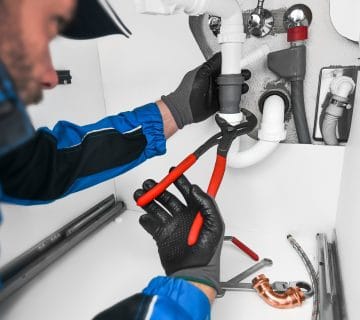How to Renegotiate an Offer After a Home Service Report
Renegotiating an offer may seem like a daunting task. You’ve found your dream home, made your original offer, and had a home service report conducted. But what happens if the report reveals some unexpected issues? Don’t panic! Renegotiating your offer after receiving a home service report is a common and totally manageable situation.
Key points:
- Ensure you understand your report and know what issues have been flagged in it.
- Speak with the agent as soon as possible to explain the situation. Take the home service report with you as evidence.
- The recommendations included in the report will help you understand how much you may want to lower the price by.
- Know what decision you would be willing to make
Can you negotiate the house price after a survey?
1) Review the report thoroughly. First things first, take the time to carefully read through the home service report. Make note of any issues flagged by the engineer, whether they’re related to the electrical system, plumbing, heating system, or anything else. Understanding the severity of the issues is important for your renegotiation strategy.
2) Ask the engineer: If you’re unsure about any of the findings in the report, don’t hesitate to check with the engineer when on site, over the phone, or by email once the report is complete. Recommendations are made within the report once the engineer is done with the inspection. This gives you specific work recommended to get done along with the urgency, allowing you to then understand the cost.
3) Prioritise Your Concerns: Not all issues revealed in the home service report may be something you want to factor into your renegotiation. Some may be minor and easily fixable, while others could require significant time and expense to resolve. Prioritise the issues based on their impact on the safety, functionality, and value of the property. This will help you focus your renegotiation efforts where they matter most.
4) Calculate Your Costs: Once you’ve identified the problems within the property that make you want to renegotiate the price of the house, you’ll need to look at the numbers. Estimate the cost of addressing each issue, taking into account both material and labour expenses. Be realistic in your calculations, but also consider leaving some room for negotiation. Having a clear idea of the total cost of repairs will give you a good foundation for renegotiating the price.
5) Propose a Solution: With your research and calculations, it’s time to approach the seller with a proposed solution. This could take the form of requesting a reduction in the sale price to account for the cost of repairs, asking the seller to complete the repairs themselves before closing, or a combination of both. Present your proposal politely and professionally, emphasising your commitment to reaching a fair and mutually beneficial agreement.
6) Be Open to Compromise: Negotiation is a two-way street, so be prepared to be flexible and open to compromise. The seller may not agree to all of your requests, but by remaining courteous and reasonable, you increase the likelihood of reaching a satisfactory outcome for both parties. Take into consideration upgrades that you might have already had in mind. It may be beneficial to only factor in the bigger issues present in the report to improve your chances of the seller agreeing. Remember, the goal is to find a solution that works for everyone involved.
7) Get it in writing: Once you’ve reached an agreement with the seller, make sure to get everything in writing. This includes any amendments to the purchase agreement, details of the agreed-upon repairs or price adjustments, and any other relevant terms or conditions. Having a written record ensures clarity and helps prevent misunderstandings down the line.
Other things to consider:
- Don’t wait until after you have exchanged. Any negotiations would need to be done before this.
- Include any work agreed to be done by the seller in the contract.
- The seller has the final say, as they need to buy their own house, so they might only be able to lower the price by a limited amount.
What happens if it’s not possible to renegotiate after a survey?
If the seller decides that there is no wiggle room at all in negotiating the pricing, you need to think about how you will respond. Your first option could be to accept this and move forward with the sale, aware of the additional costs when moving in. Or you have the option to back out of the sale, withdrawing your offer.
What is the average price reduction after a survey?
Renegotiating an offer can prove to be worthwhile, with a Which? survey showing reductions of 5%–10%.
Renegotiating an offer after receiving a home service report can seem daunting, but with careful planning and effective communication, it’s entirely manageable. Happy negotiating!







